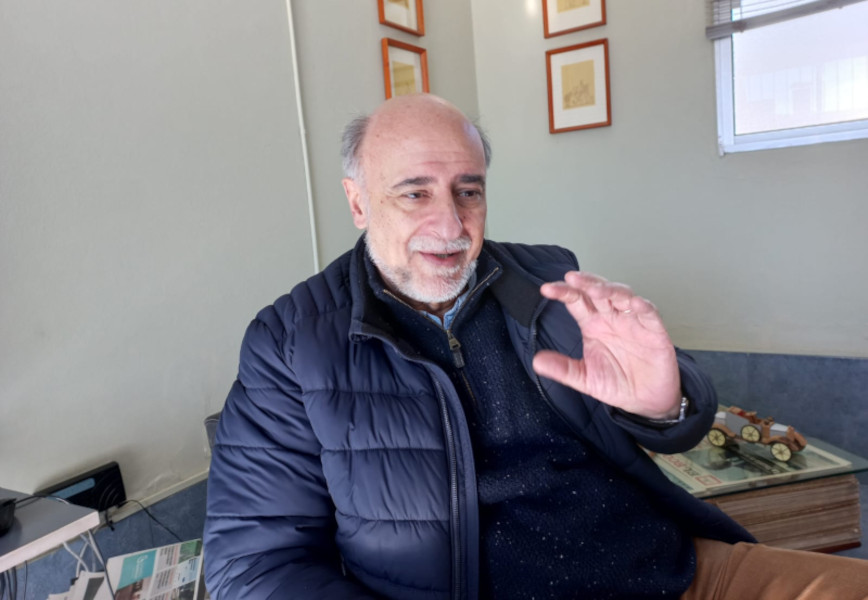Former Minister of Labor, Pablo Mieres, defends the social security reform of the current government and considers that the Frente Amplio is not an option to continue the changes proposed in the country. And, although he has differences with Cabildo Abierto, he maintains that a balance has been achieved on essential issues.
According to the leader of the Independent Party (PI), citizens have two options: “continue moving forward with the governing coalition that we are part of, and that we also share, or go with the Broad Front, which I believe does not represent an option that provides citizens with certainty on very important issues such as education, such as Social Security… They even believe that more taxes should be imposed.”
Mieres adds that the educational transformation is taking place with the coalition: “the Front announced it several times, but never made it a reality,” he said last Saturday the 10th, during his visit to Nueva Palmira in the company of Dr. José Duarte (candidate for deputy for the PI in the department of Colonia).
The PI has 1% of voting intentions and, as in the previous period the National Party was the leader of the coalition, the facts would indicate that it is the one who defines the agenda. For Mieres, this is not the case. “We do not feel that way. We have defended things that have obviously involved arm wrestling. We are clear that there are lines that one cannot cross. If those lines were crossed, we would not be in the coalition, for example, the salary recovery was an arm wrestling. We committed ourselves to achieving recovery after the pandemic and that is what happened, we were very firm in that.”
When asked about his relationship with Guido Manini Ríos, from Cabildo Abierto, he says that “it is not a very exchange, but we get along normally. I have very notable differences with Manini Ríos’ thinking, we always had them, the party and I in particular. I have no problem in acknowledging it. For example, we have a very clear opinion on the issue of the disappeared, on the issue of justice and we did not vote for the bill they presented on house arrest for certain people who were deprived of liberty for crimes against human rights. However, I also have to recognize that, for example, in the Ministry of Labor team there is a representative of Cabildo Abierto who is deputy director of employment and we have gotten along very well. I would say that Cabildo and the Independent Party are the two ends of the coalition. That is to say, we are more towards the center left and Cabildo represents the sectors further to the right.”
BPS plebiscite
Mieres defends the reform of Social Security arguing that there would not be resources to equate minimum pensions with real wages and that retirement cannot be returned to 60 years of age, because there will not be resources to pay them. It is part of the reality of an “aging country with a low birth rate.”
The current government’s reform raised the retirement age to 65. For its part, the Pit-Cnt, through citizen signatures, managed to get a plebiscite on the possibility of returning the retirement age to 60, eliminating the AFAPs and making the minimum retirement equal to the minimum wage.
Mieres argues that “retirement at 60 years of age was a century ago, people retired at 60 years of age, their life expectancy was 63-64, they received a pension for 3 years because they died, now the person who reaches 60 years of age has a long life expectancy of 20 years. So how do you pay all those people who are going to live so many years and who, in addition, have an economically active population that is increasingly smaller? (…)”. For the presidential candidate, the way to maintain pensions at 60 years of age and with the same minimum amount as the minimum wage, “would be that instead of withholding 15% from workers’ salaries, 20, 25 or 30% would have to be deducted and employer contributions would also be increased”.


















